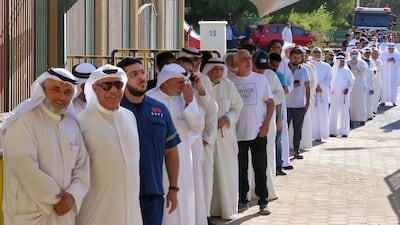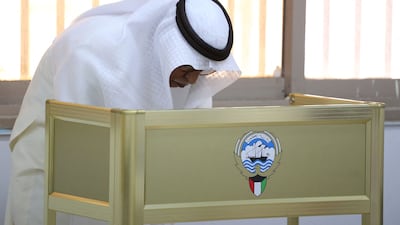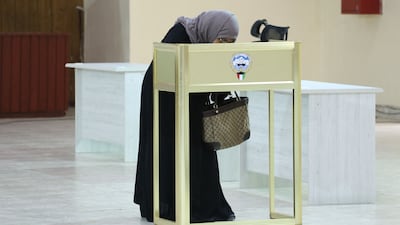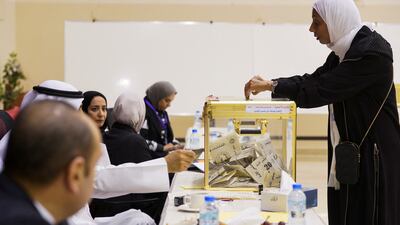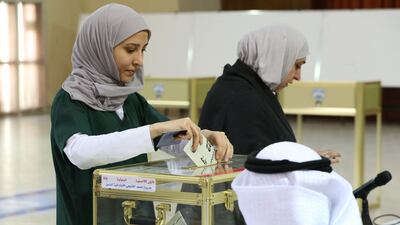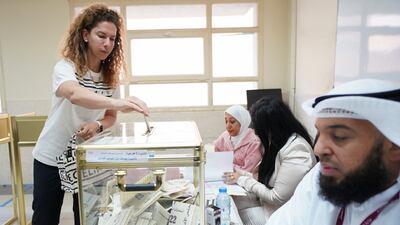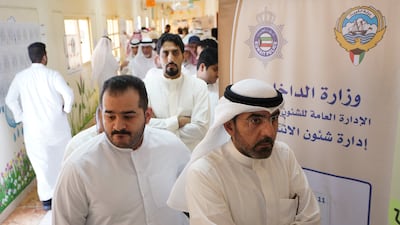Kuwaitis are heading back to the polls on Thursday to elect the country's next parliament.
Voters are expected to turn out in strong numbers after a turbulent year in which the country's previous National Assembly was dissolved following a political deadlock with the appointed government.
A total of 305 candidates, including 22 women, will compete in National Assembly elections in Kuwait on Thursday for the 50-seat parliament, with 795,911 people registered to vote, official figures show.
Kuwait’s Crown Prince Sheikh Meshal announced the dissolution of parliament in a statement on behalf of the emir in June and called for new elections. During the last election in 2020, Kuwaitis voted to replace 31 sitting MPs, electing 22 who had never served in parliament before.
Hopes for strong voter turnout
Kuwait’s Ministry of Education has designated 123 schools as polling stations for the voting which will run from 8am to 8pm on Thursday, the electoral commission said.
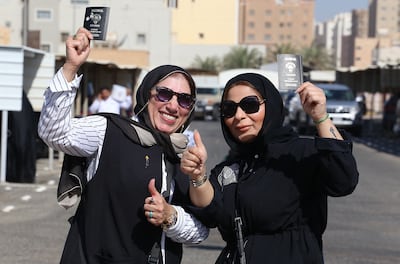
New faces are expected to win heavily in contested constituencies after a number of sitting MPs decided not to run for elections, including the departing Parliament Speaker Marzouq Al Ghanim.
The previous government, under former prime minister Sheikh Sabah Al Khaled Al Sabah, faced several months of political feuding and tension with parliament.
Several members of the Cabinet, including the ministers of defence and foreign affairs, survived no-confidence votes.
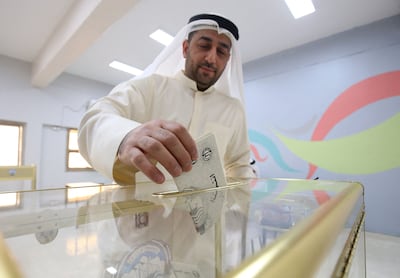
When he dissolved parliament via a royal decree, the crown prince said Kuwait’s leadership would rely on the people to elect a parliament after the previous assembly behaved in “practices and behaviours that threaten national unity".
The election on Thursday is also set to be the most inclusive in recent history after longstanding opposition figures decided to end their boycott and run for election, as the crown prince pledged not to meddle.
"We will not interfere in the people's choices for their representatives, nor will we interfere with the choices of the next National Assembly in choosing its speaker or its committees," he said.
"Parliament will be the master of its decisions and we will not be supporting one faction at the expense of another. We will stand at the same distance from everyone."
Female representation
Kuwaitis are also hoping for the return of female representation after the sole female MP, Safa Al Hashem, lost her seat two years ago.
Women make up 51.2 per cent of the registered electorate About 70 per cent of the population of around 4.2 million is made up of expatriates, who are ineligible to vote.
Kuwaiti women earned the right to vote in 2005 and have been active both in Cabinet and parliament, although they did not gain any seats in the last parliament. Issues pertaining to women's rights in the past year have raised hopes voters will elect more women into the next parliament.
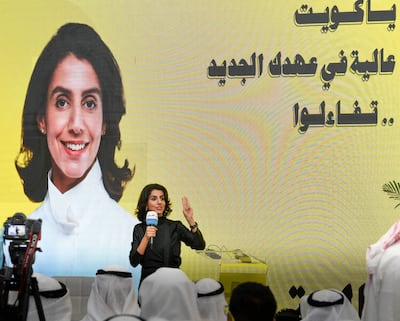
Fajed Al Saeed, a well-known television personality figure running for elections, told reporters after registering her candidacy: “It will be a tough challenge to get a female elected but we are hopeful that we can get several seats in the next parliament. But for the female candidates who are running who are not known publicly, or have never had experience in the public eye, it will definitely be a challenge to win over voters.”
Moudhi Al Mutairi, a first-time candidate running in the fourth constituency, has been dominating social media conversations in recent weeks for her campaign promises. Among the bills she has promised to propose if elected are amending the National Assembly Decree to clearly specify the procedures for dismissing the speaker if proven to have violated the Election Law and other legislation, as well as specifying term limits for the prime minister.
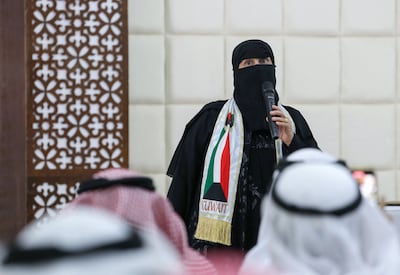
Kuwaiti political observers are hoping for a strong change in the National Assembly's composition as it moves forward in working with the current government led by the Emir’s son Sheikh Ahmed Nawaf Al Ahmed Al Sabah.
“Unfortunately, I’ve said this many times before, the democracy we practise in Kuwait has not conjured a nation of statesmen,” said Kuwaiti political analyst Mohammed Al Sabti. "People tend to vote along sectarian and tribal lines and the contest for the parliament has become somewhat of a competition of personal interests.
“We’re hoping people unify to vote for the best candidates moving forward so that the country can finally witness a functioning relationship between the parliament and government and longstanding economic issues can be solved and projects can move forward."


